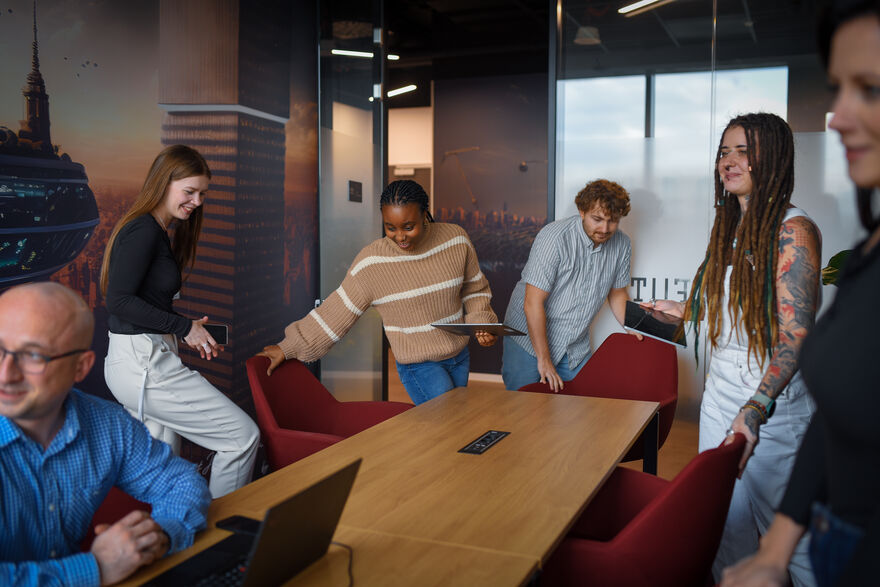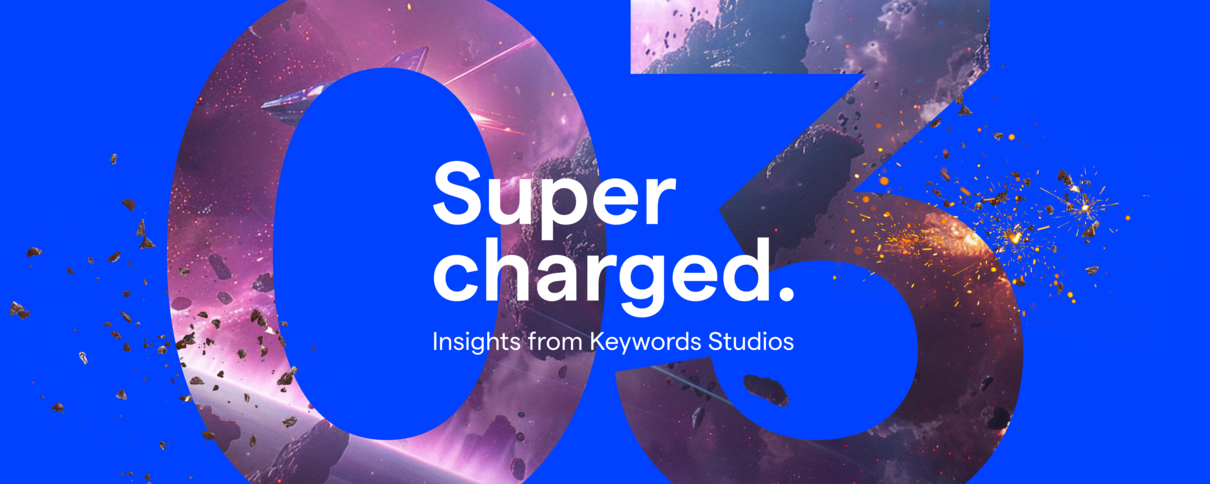The Importance of the Personal Relationship in Co-Development
Great games aren’t just built on code and creativity. They’re built on people.

When development is shared between studios, publishers, and outsourcing partners, one factor often decides success or failure: the quality of the relationships between teams.
Before I moved to d3t in 2015, I had worked for a number of “standard” developers. In-house teams who worked together and knew each other. From big, first-party studios to smaller independents. I knew how to design games and work with the dev team.
I did. But also, I didn’t.
The myth of seamless integration
Co-development is not the same as in-house development, although some of the most crucial differences are not immediately apparent. The biggest difference that eventually got through to me is the importance of the personal relationships, and how hard it is to build them across the divide of having different employers with different cultures, processes, and priorities.
It’s very easy to say, “we’re one big team” with “shared ownership”. It’s a big effort for this to be true. Based on my personal experience, without intentional relationship-building, teams remain siloed. Even when technically “embedded.”
Why relationships matter more than processes
“We’re all professionals, and there’s no way I could advise a programmer how to do what they do. Just let them get on with it.”
Well, no. Simply put, when plans shift (and they usually do), you’ll need to discuss the problems to find the solutions. And if you already have a good relationship, those discussions will invariably be easier for everyone.
You build the relationship when things are going well, and you rely on that foundation when there are harder issues to face. You build up social capital when you can and spend it when it’s needed.
Game dev is all fine and dandy with a gradual increase in pressure until that gradual increase becomes stress. And then any fault-lines in processes or relationships are more likely to create fractures. And then you have a whole load of other problems to deal with.
Believe me, it’s way easier to fix problems when you get on with the people you have to talk to.
So how do you build these bonds?
In my experience, there’s a quick way, and a long way. The quick way, ironically, takes longer.
The quick way is to just get the teams working together as soon as possible. Create common communication channels like Slack. Regular formal and informal virtual meetings. These are, to my mind, absolutely essential for co-development to work, and should therefore be seen as the most basic level of interaction and integration. Detailed onboarding procedures are invaluable, yet less common than you’d think.
The long way is to get together. Old fashioned style. Face-to-face. Talk, eat, ask questions, spend time having casual conversations, solve non-work-related problems. Discover what you have in common. And THEN get all the other stuff – shared meetings, common comms channels etc.
What I’m getting at here is that human-to-human contact is important. Remote work is really useful, don’t get me wrong. But we are social animals – there are neurochemical benefits we get when working and being with other people.
The strength of these benefits can change from person to person, but we all feel better when we have the social chemicals (serotonin and oxytocin) coursing through our systems. And both of these are released when we are in collaborative, social situations.
The co-dev cheat code
We don’t have to be best friends to do co-development, but having a good human relationship is definitely a cheat code, a force multiplier. It unlocks better collaboration, reduces friction when stakes are high, and turns outsourcing partners into true co-creators that are going the extra mile with creative and innovative solutions you might not have thought of.
If you lead a co-dev partnership, take the time to invest in the people, not just the process.
- Prioritize relationship-building alongside pipeline setup
- Budget time for face-to-face encounters
- Measure success not just by deliverables, but by trust and alignment
After almost a decade of co-dev, I assure you that the benefits far, far outweigh the costs.

Sign up to our quarterly newsletter.
Sign up to our quarterly newsletter and keep up to date with the latest in the industry.







